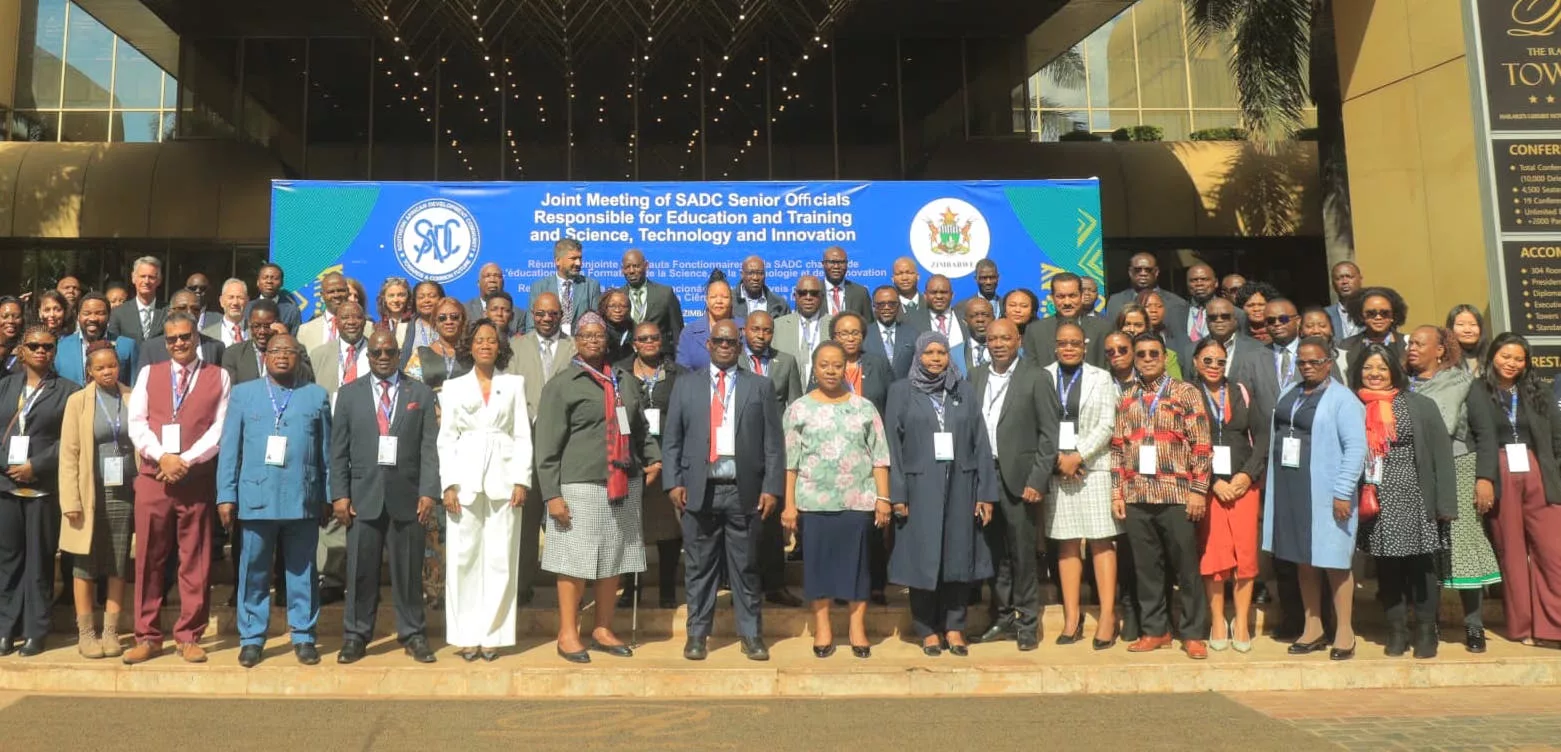|
Getting your Trinity Audio player ready...
|
Education, science, technology, and innovation drive socio-economic development in the Southern African Development Community (SADC) region, Zimbabwe’s Permanent Secretary for the Ministry of Higher and Tertiary Education, Innovation, Science and Technology Development, Prof Fanuel Tagwira has said.
He made the remarks today Tuesday 17 June 2025 at the SADC Ministers of Education and Training and Science, Technology and Innovation workshop at the Harare International Conference Centre (HICC).
He said Education, Science Technology, and Innovation are pivotal to national development, and a country’s development is determined by its education system.
Stakeholders are gathered to advance the collective vision for a transformed, competitive, and industrialized SADC region, anchored on education, innovation, science, and technology development.
The region stands at the crossroads of opportunity—where the SADC Industrialisation Strategy, the Protocol on Education and Training, and the Science, Technology, and Innovation (STI) Agenda should converge to shape the future.
Prof Tagwira said the focus must be on quality education by ensuring access to quality education for all, with a focus on STEM education and digital literacy.
He said innovation and entrepreneurship fosters a culture of innovation and entrepreneurship to drive economic growth and job creation, science and technology will address regional challenges, such as climate change, healthcare, and food security. Collaboration and Partnerships among member states, regional organizations, and international partners drive progress.
“Esteemed heads of delegation and senior officials, Accelerating Industrialisation Through Education and Innovation; Foundational Literacy and Numeracy: Bedrock of Productivity; and STI as the Catalyst for Industrialisation are 3 critical issues that define and shape science, technology, education and training and hence industrialization in our countries.
“The SADC Industrialisation Roadmap (2015–2063) demands that we prioritize human capital development and innovation as the engine for productivity,” Prof Tagwira said.
The SADC University of Transformation (SUT) is a flagship initiative poised to bridge the gap between SADC academia and industry. By ratifying the SUT, stakeholders commit to producing job creators, not just job seekers, with curricula aligned to regional value chains in mining, agriculture, and ICT. He urged member states to fast-track ratification to unlock its potential and be part of the transformative initiative.
The SADC Qualifications Framework (SADCQF) and ACQF II – the SADC Referencing Project and the forthcoming SADC Qualifications and Credential Platform are game-changers. They ensure that a mechanic certified in Malawi is recognized in Mozambique, and a nurse trained in Zimbabwe can work in Zambia—without barriers to recognition.
This is the essence of the SADC Protocol on Education and Training’s call to have a regional qualifications Framework that speaks to Member State Qualifications Frameworks.
“Let us adopt the revised Credit Accumulation and Transfer Systems (CATS) Guidelines and the Recognition of Prior Learning Guidelines developed by our very own experienced SADC Quality Assurance Experts from various agencies through the SADC Technical Committee on Certification and Accreditation (TCCA) in collaboration with our esteemed development partners to make this a reality,” he said.
On Mutual Recognition of Qualifications (MRQ), he said the recently held first meeting of the G20 Member States hosted by South Africa in the north West Province Sun City entered on the issue of Mutual Recognition of Qualification across the G20 Member States.
Today, the Revised SADC Recognition of Prior Learning (RPL) Guidelines tabled for adoption will empower the informal sector—especially women and rural youth—to formalize their skills.
This is inclusive growth in action and this also speaks well of the integration of Mutual Recognition of Qualifications within SADC Member States and this can also inform the same agenda across COMESA and even the G20.
He said the Regional Innovation and Technology Support Programme will incubate startups to drive the US$5 billion digital economy target. There is a need to embrace digital technologies to enhance education, innovation, and entrepreneurship.
Addressing Skills Mismatch ensures that education systems produce graduates with the skills required by the labor market. Promoting inclusivity ensures that initiatives are inclusive and benefit all members of society, particularly vulnerable groups.
“As a region, we need to invest in education and innovation to drive economic growth and development. Sharing best practices and experiences among member states accelerates progress. By working together, we can harness the power of education, science, technology, and innovation to drive socio-economic development and improve the lives of our citizens.
“We are grateful to our partners whose contributions to education, training, science, and technology in our countries are worth mentioning: To ILO—your support for RPL has been invaluable. To OBREAL—your expertise in qualification harmonization is transformative. To the Gates Foundation—your investment in literacy is shaping generations. And to UNESCO—your SDG4 alignment ensures no one is left behind. To the SADC Secretariat your lean structure continues to deliver impactful milestones and we are grateful,” Prof Tagwira added.
He urged the adoption of the Revised TVET Strategic Framework (2024–2030) to align with labour markets; endorsement of the SADCQF CAT and RPL Guidelines to fast-track regional referencing; and champion the SADC University of Transformation as a beacon of pan-African excellence.
“The time for deliberation is over; the time for action is now. Together, let us build a SADC where no skill is wasted, no innovation is siloed, and no learner is left behind.”






